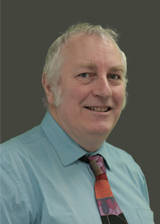RUSI and Canada highlight North Korea’s chemical weapons threat
The Royal United Services Institute (RUSI) and Global Affairs Canada held a side event focusing on North Korea’s chemical weapons capability during the 29th Session of the Conference of the States Parties (CSP-29) to the Chemical Weapons Convention (CWC) in The Hague.
RUSI was pleased to co-host the event at this year’s conference with the support of the Canadian delegation in The Hague and Global Affairs Canada.
The event brought together around 80 stakeholders, including state party delegations, members of civil society and staff members of the Technical Secretariat. It provided an opportunity to showcase the research conducted by RUSI’s Proliferation and Nuclear Policy team in the framework of Project Anthracite, which aims to build up a comprehensive picture of North Korea’s industrial chemical capability and identify any potential links to chemical weapons production. While North Korea is not a party to the Chemical Weapons Convention, its chemical weapons potential remains a source of concern for the State Parties.
During the event, RUSI Senior Research Fellow Lennie Philips and RUSI Research Fellow Jack Crawford presented a summary of the outputs of the Anthracite project and outlined ongoing work. This included:
- A presentation of the site profiles for Ponghwa Chemical Factory, a new building in the Hamhung area and an overview of Academic and R and D areas to the north of Hamhung.
- An overview of ongoing work in relation to Hungnam Fertiliser Complex and the 8 February Vinalon Complex.
- An introduction to analysis of DPRK patents.
- An initial analysis of international trade data.
Reflecting on the event, Lennie Phillips, Senior Research Fellow at RUSI and Project Anthracite lead, said:
The CSP provides a platform, albeit small, for civil society to engage with government representatives from around the world. In this forum we were able not only to keep the lack of universality in the minds of delegates but also offer a potential insight as to the issues that might be faced in North Korea. The lack of accountability for the use of chemical weapons should not discourage delegations from preparing for the inclusion of the DPRK in the OPCW.
Lennie Phillips OBE
Senior Research Fellow, Chemical Weapons
About Project Anthracite
Project Anthracite, run by RUSI’s Proliferation and Nuclear Policy team and funded by Global Affairs Canada, seeks to provide a new and unique open source assessment of North Korea’s chemical weapons capability. Using remote sensing technologies and other open source tools, RUSI researchers are conducting a review of key facilities to produce a networked overview of the country’s chemical industry. This will inform an assessment of North Korea’s chemical weapons production potential. The Project Anthracite team has thus far produced site profile analyses of Ponghwa Chemical Factory, New Building in Hamhung Area and Research and Development Areas North of Hamhung.

